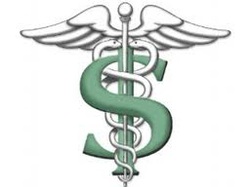
With so many priorities competing for your hard-earned dollar, smart saving tips can matter in every facet of your financial life. Here are six ways to potentially get better value for your health care dollar and save on medical costs.
1. Seek value-oriented health care solutions.
There are four types of providers:
- a PCP
- a specialist(s) for any existing or expected conditions
- an urgent care provider
- a full-service hospital.
For example, you may find that seeking care from a primary-care physician (PCP) or a high-quality urgent care center rather than an emergency room may be a better way to go. In some cases, an emergency room visit could cost $2,000, while an urgent care facility may cost $200 for essentially the same care, a big difference when it comes to paying the final bill.
2. Communicate with health care providers.
Communicating your objectives for cost control is important no matter what type of plan you are in, but particularly for anyone in a consumer-directed health plan (CDHP) with a high deductible. If you have this type of plan, you should let the provider know that you will be paying for the service yourself so he or she can understand the need for you to control costs.
IFor example, if your intention is to receive an annual physical that may not be subject to any co-pay or coinsurance costs, be sure to confirm before the appointment that the provider will bill the procedure as an annual physical and not as a different, higher-cost procedure.
Here is a list of questions you should ask for the care provider:
- A clear description of the diagnosis and proposed care, free of confusing technical jargon
- The benefits, risks, and cost alternatives to the proposed care
- Cost comparisons for alternative treatments
- The number of comparable cases the provider handles
- Qualifications of the key personnel involved
- The expected out-of-pocket charges and fees based on the proposed care, your condition, and your health plan
3. Save on drug costs.
Depending on the condition you have, some prescription drugs can cost up to thousands of dollars per year to fill. Consider the following strategies to help control drug costs:
- Use a generic drug. Insurance plans often charge a higher price for name brand drugs than for generic drugs. You should review the list of available generic drug options with your doctor to see if there could be a safe, effective, and lower-cost alternative to any name brand drugs now being used. But also check with your insurance company which generics are covered before asking your doctor to renew a prescription, as the plan's list of approved generics can change over time without a doctor's knowledge.
- Get a 90-day vs. 30-day supply of medications. Longer supplies often have a modest discount. Also, look into preventive vs. nonpreventive drugs. If a drug is classified as preventive, it is often much less expensive than a nonpreventive drug.
- Double-check prices. Don't assume that a health plan's prescription drug distributor offers the best price. Other distributors may offer a better price for the exact same drug. You should also check the price of your prescriptions at local retail drug stores.
4. Be creative.
Think outside the U.S. box. It pays to shop around for prescription providers and medical care facilities, even out of the United States.
5. Maximize your health care benefits.
Many health care plans are increasingly rewarding particular behaviors (e.g., healthy eating) and discouraging others (e.g., smoking). The key is to clearly understand the products, services, and providers that are covered at the lowest cost to you, and then consistently choose these over alternative options. At a minimum, you should take some time each year to confirm that your preferred PCP, specialist(s), hospital, dental, and vision care providers are still in your plan's network and that you remain eligible for the highest level of reimbursement.
6. Know your rights.
All people should know their medical rights, including rights to privacy, to access medical records, to have loved ones make decisions for them when they cannot, and to have hospital visits. But there is another set of rights to be aware of:
- The right to know what medical services cost before they are incurred
- The right to select medical providers
- The right to choose or refuse medical services. Although medical providers are trained to act in our best medical interest, they do not necessarily act in a patient's best financial interest; it is the patient's right to agree to or refuse services.

 RSS Feed
RSS Feed
